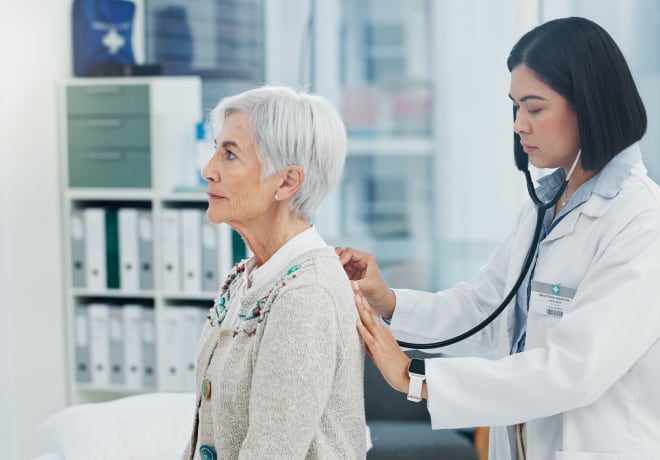While Attention-Deficit/Hyperactivity Disorder, or ADHD, is commonly treated with psychostimulants, there are some downsides to this pharmacological intervention. With a few other medication options for ADHD are available, including non-stimulant ADHD medications and antidepressants, Nurse Practitioners can customize a patient’s combination therapy to what will work best for their specific ADHD presentation.
In this article, we will cover these other pharmaceutical interventions, when Nurse Practitioners should consider a non-stimulant, and how to decide on a combination therapy approach.
Related course: Precision Medicine for Depression, Anxiety and ADHD
What is ADHD?
Attention-Deficit/Hyperactivity Disorder is a neurodevelopmental disorder characterized by three main symptom categories:
- Inattention, including getting distracted easily, difficulty carrying out tasks, and frequently losing things,
- Hyperactivity, including fidgeting, trouble sitting for long periods, and talking excessively; and
- Impulsivity, including interrupting others, difficulty controlling urges, or trouble waiting one’s turn.
What are common treatment and medication options for ADHD?
While there is no cure for ADHD, there are a number of treatments that help mitigate the symptoms of ADHD. The most common treatment for ADHD is a psychostimulant medication, which works by boosting neurotransmitter levels. This can increase attention span, help control impulses, and more.
There are many psychostimulants on the market, and they are often grouped according to their half-life. There are short-acting drugs, like Dextroamphetamine (Adderall) and Methylphenidate (Ritalin), that patients may take up to three times daily. Then there are long-acting stimulants like Dexmethylphenidate (Focalin XR), Amphetamine/Dextroamphetamine (Adderall XR), and Lisdexamfetamine (Vyvanse), among others, that patients may take only once daily. There are also a few intermediate-life medications.
Why might ADHD psychostimulant medications not work for some patients?
There are many reasons why patients should not take psychostimulants, including an underlying heart problem, glaucoma, Tourette’s syndrome, a history of psychosis, severe anxiety, and more. There are also a number of side effects from psychostimulants that patients may find debilitating, including weight loss, insomnia, nervousness, and headaches.
Finally, some patients may find that psychostimulants stop working or wear off too abruptly. In any of these cases, if psychostimulants are not a good fit for a patient, Nurse Practitioners can consider non-stimulant medications.
What are non-stimulant medication options for ADHD?
Many non-stimulant medications are available specifically for the treatment of ADHD. These include:
- Atomoxetine (Strattera)
- Viloxazine (Qelbree)
- Clonidine ER (Kapvay)
- Guanfacine ER (Intuniv)
Like psychostimulants, these non-stimulant ADHD medications work to increase the level of neurotransmitters in the brain to assist with executive functioning like focus and impulse control.
Why would Nurse Practitioners consider non-stimulants for ADHD?
Although non-stimulant medication options for ADHD may not be as effective as psychostimulants for the treatment of ADHD, they are a great option for patients who are not candidates for psychostimulants. Patients may also find non-stimulant medications easier to tolerate compared to psychostimulants. Because they are not stimulants, they do not pose the same risk of side effects.
Non-stimulant ADHD treatments do not cause nervousness, insomnia, or weight loss like psychostimulants can. If a patient is struggling to cope with these side effects of their stimulant medication, you may want to consider switching them to a non-stimulant medication.
Related course: Psychiatric Medications: An Update on the Newer Drugs
Are there any other medications options for ADHD available?
One final category of potential medications for patients with ADHD is antidepressants. While antidepressants do not specifically treat ADHD, they can help with some ADHD symptoms.
Why do antidepressants help with ADHD? Just like other ADHD medications, antidepressants regulate the neurotransmitters present in the brain. Remember that they are reuptake inhibitors, as in the names Selective Serotonin Reuptake Inhibitor (SSRI) and Selective Norepinephrine Reuptake Inhibitor (SNRI). Therefore, antidepressant drugs can help regulate some symptoms of ADHD.
What is an ADHD combination therapy?
ADHD combination therapies are medication regimens that employ two or more medications from these different categories. It is common to see a stimulant and a non-stimulant paired together.
In these cases, Atomoxetine (Strattera) or Viloxazine (Qelbree) are the two non-stimulants commonly paired with a patient’s existing stimulant medication. It is also common for patients on stimulant medications to take another medication, like an antidepressant, for a comorbid mood condition.
When should Nurse Practitioners consider ADHD combination therapies?
There are two main reasons you might put a patient with ADHD on a combination therapy plan. The first is that the patient has a second, underlying mental health condition. It is very common for patients with ADHD to have a comorbid condition.
While a learning disorder is most common (at nearly fifty percent), studies have found that around a fifth of people with ADHD also have a general anxiety or depression disorder. It is essential for Nurse Practitioners to keep this in mind when prescribing for ADHD, as a stimulant can cause further nervousness and exacerbate symptoms of a patient’s anxiety disorder.
The second reason a patient might be a good candidate for a combination therapy approach is to mitigate the effects of a psychostimulant treatment. As noted above, psychostimulants can cause a number of side effects, including nervousness. An anti-anxiety medication would be a common combination therapy in this instance to improve the stimulant’s efficacy and reduce side effects.
When are antidepressants a good addition to an ADHD combination therapy?
While antidepressants are not a treatment for ADHD in and of themselves, Nurse Practitioners should keep antidepressants in mind for patients with ADHD. Clinicians can prescribe antidepressants in combination with an ADHD medication to help control anxiety, nervousness, or other similar ADHD symptoms. They can also be a great combination therapy specifically for patients with diagnosed depression or mood disorders in addition to ADHD.
What should Nurse Practitioners keep in mind when prescribing non-stimulants for ADHD?
One thing to remember is to counsel patients on the timeline for non-stimulant effectiveness. Non-stimulants take longer, as compared to stimulants, to fully feel the effects. Therefore, if a patient is taking only a non-stimulant, or taking a non-stimulant to mitigate side effects from stimulants, it may take up to four weeks for the non-stimulant to kick in.
Similarly, Nurse Practitioners should remember to counsel patients on patience when starting a new drug therapy. It can take a while to find an ADHD therapy that works. There are many medications and combination therapy options, and finding one that works is simply an individual process that takes time. Helping a medication-naive ADHD patient find the right treatment plan for them may be a process of trial and error, and patients need to be patient and have reasonable expectations about this process.
What are the other aspects of ADHD treatment?
Finally, Nurse Practitioners should keep in mind that medication is only one part of treating ADHD. Like many conditions, ADHD is best managed with a proper lifestyle including healthy eating, a strict sleep schedule, and regular exercise. Helping ADHD patients understand the importance of such routines and work to adhere to these schedules is part of the role of a Nurse Practitioner.
Similarly, talk therapy can be another element of ADHD treatment. Therapy can help patients learn strategies for coping with ADHD such as working on time management, organization skills, frustration tolerance, problem-solving, communication skills, and more. Working with a patient to build a proper support network around all these elements — medication, therapy, and skills building — will ultimately be the best treatment for their ADHD.
Earn CE hours with our online course on Comprehensive Psychopharmacology for Nurse Practitioners and Advanced Practice Clinicians (free with Passport Membership)!





